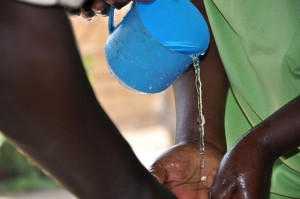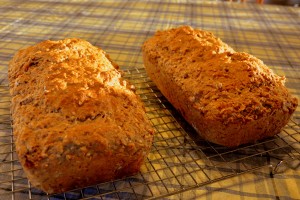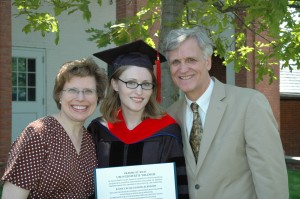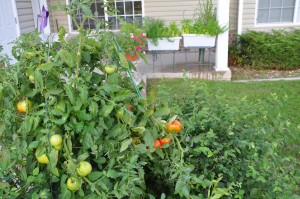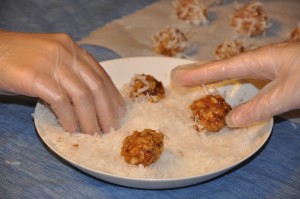It was 2 p.m. on a hot, dry day in Malawi. Already, the three of us representing ELCA World Hunger had visited a savings and credit cooperative, seen life-saving wells, and witnessed a goat project, piggery, and community seed bank.
The end-of-visit speeches signaled it was about time to leave Kabuzi, the second village on the itinerary. Instead of returning to the vehicles, however, the visitors–we three plus staff from the Evangelical Lutheran Church in Malawi (ELCM) and the Evangelical Lutheran Development Service (ELDS)–were ushered into a home. We sat on chairs surrounding a mat.
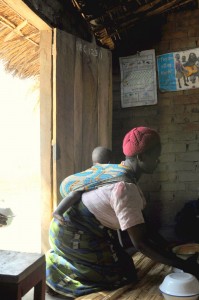 Once seated, a woman came in, her head bowed. Kneeling, she placed covered dishes on the mat–a hospitable feast of steaming cornmeal with a chicken sauce. Without a word, she backed out of the door. This process is repeated several times.
Once seated, a woman came in, her head bowed. Kneeling, she placed covered dishes on the mat–a hospitable feast of steaming cornmeal with a chicken sauce. Without a word, she backed out of the door. This process is repeated several times.
We remain quiet as ELCM/ELDS staff members start the hand washing. While holding a basin to catch the water, one person pours a cup of water over another’s hands. Around the room, the hand-washed became the hand-washer for the next person. It was a holy moment.
In my mind I saw Jesus, washing the feet of his disciples. I remembered my favorite hymn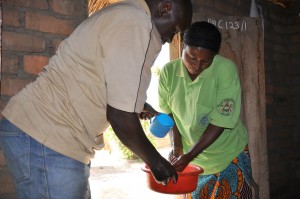 by Richard Gillard, “Will you let me be your servant, let me be as Christ to you? Pray that I may have the grace to let you be my servant, too.” With new appreciation, I thought of the ELCA tagline: “Gods work, Our Hands.”
by Richard Gillard, “Will you let me be your servant, let me be as Christ to you? Pray that I may have the grace to let you be my servant, too.” With new appreciation, I thought of the ELCA tagline: “Gods work, Our Hands.”
Later, we learn that hand washing in Malawi is traditionally done by a woman, on her knees. She is to keep her head lower than any man or guest in the room. The fact that church leaders–men as well as women–did the hand washing was a shocking act of humble service.
“So, if I, your Lord and Teacher, have washed your feet, you also ought to wash one another’s feet. For I have set you an example, that you also should do as I have done to you” (Luke 13:14-15 NRSV).
—Sue Edison-Swift
March 25, 2013

